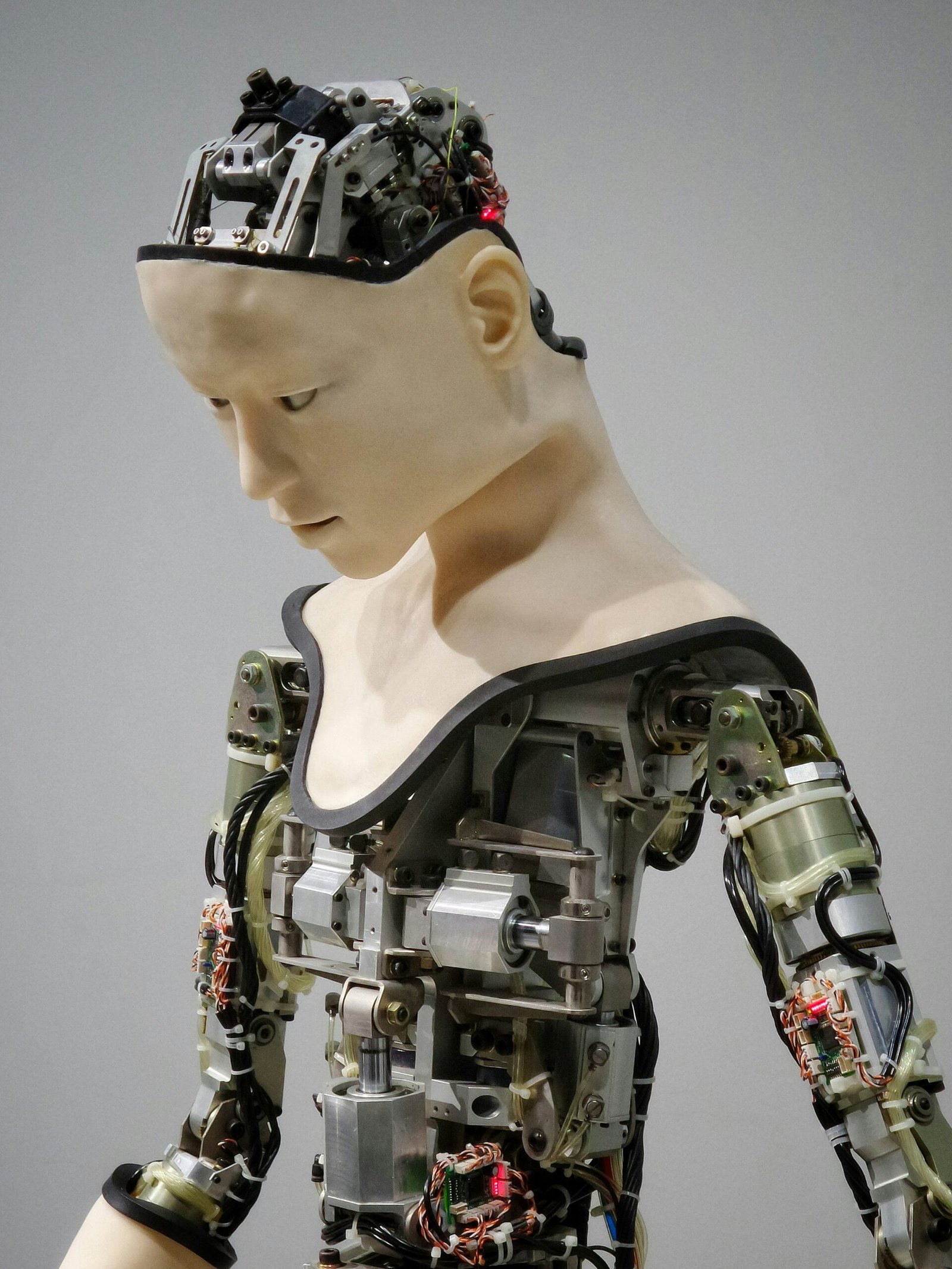
Introduction to the Solo Revolution
The term “Solo Revolution” encapsulates a transformative shift in the world of entrepreneurship, marked by the rise of individual entrepreneurs who harness the power of artificial intelligence (AI) to establish and manage their businesses. This phenomenon has largely emerged due to the democratization of technology, making advanced tools and resources accessible to a wider audience than ever before. In the past, entrepreneurship was predominantly the domain of corporations or individuals with substantial financial backing. Today, however, many individuals are confidently venturing into business with minimal overhead costs, owing to the advancements and accessibility of AI.
Several socio-economic factors contribute to this trend. The internet has facilitated a connected global marketplace, allowing entrepreneurs to reach customers far beyond their local communities. Additionally, the growth of remote work has sparked a cultural shift wherein individuals increasingly seek to create their own opportunities instead of entering traditional employment. The pandemic has further accelerated this trend, prompting many to re-evaluate their career paths and explore alternative income streams. This context has fostered an environment where aspiring entrepreneurs can thrive using sophisticated AI tools, thus reducing the barriers that once stifled individual initiatives.
Artificial intelligence plays a critical role in empowering those within the Solo Revolution. From customer service chatbots to data analytics and marketing automation, AI enables solo entrepreneurs to automate repetitive tasks, optimize operations, and focus on scaling their businesses. This shift not only enhances efficiency but also allows for more strategic decision-making, setting the stage for greater success in an increasingly competitive landscape. As the Solo Revolution continues to evolve, it will undoubtedly reshape the future of entrepreneurship, making it an exciting time for individuals willing to embrace this new era of innovation.
The Role of AI in Empowering Entrepreneurs
Artificial Intelligence (AI) is playing a pivotal role in shaping the landscape of entrepreneurship by providing tools and technologies that significantly enhance individual capabilities. For solo entrepreneurs, the integration of AI into business processes can lead to improved efficiency and effectiveness across various domains such as marketing, finance, and customer service. One of the key categories of AI tools is automation software, which allows entrepreneurs to streamline repetitive tasks, freeing up valuable time to focus on strategic initiatives. For instance, platforms that automate email marketing campaigns can help entrepreneurs maintain communication with potential customers without the constant need for manual input.
Data analytics is another area where AI proves invaluable for solo entrepreneurs. By leveraging AI-driven analytics platforms, entrepreneurs can gain insights into customer behavior, market trends, and operational inefficiencies. This data-driven approach empowers individuals to make informed decisions, optimizing their strategies based on empirical evidence rather than intuition alone. Moreover, understanding customer preferences through predictive analytics can lead to personalized marketing efforts, which often translate into increased customer satisfaction and loyalty.
Machine learning applications further complement these tools, enabling entrepreneurs to refine their offerings by adapting to changing market demands. For example, chatbots equipped with AI-driven machine learning can handle customer inquiries with remarkable efficiency, providing instant support that enhances user experience. This not only saves time but also allows solo entrepreneurs to provide life-like interactions without the need for extensive customer service teams. Ultimately, the adoption of AI technologies facilitates a transformation in the entrepreneurial journey, granting individuals the ability to operate on a scale that was once only possible for larger organizations. By harnessing these innovative tools, solo entrepreneurs can navigate challenges with greater ease, thereby fueling their growth and success in an increasingly competitive marketplace.
Case Studies: Success Stories of Solo Entrepreneurs
The landscape of entrepreneurship has significantly transformed with the advent of artificial intelligence (AI), empowering individual entrepreneurs to operate efficiently and effectively across various industries. One compelling case study is that of Sarah Johnson, a solo entrepreneur in the field of digital marketing. By integrating AI-driven analytics tools into her operations, Sarah was able to gain valuable insights into consumer behavior and trends. This enabled her to tailor her marketing strategies meticulously, resulting in a 150% increase in her client’s engagement rates within six months.
Another notable example is that of Mike Thompson, a freelance graphic designer who adopted AI-assisted design software to enhance his creative output. By utilizing AI tools for automating routine graphic tasks, Mike could focus more on ideation and creative development. Consequently, he experienced a 40% reduction in project turnaround time, allowing him to take on additional clients and ultimately triple his income in less than a year.
Within the realm of e-commerce, we find the success story of Emily Chen, an entrepreneur who set up an online store for handmade goods. Leveraging AI algorithms to optimize inventory management and predict sales trends, Emily efficiently managed her stock levels, avoiding overproduction issues. Furthermore, her use of AI in customer service through chatbots created a seamless shopping experience, leading to higher customer satisfaction and repeat purchases. As a result, her business has grown exponentially, with a 200% increase in revenue year-over-year.
These inspiring case studies underscore the transformative impact AI has had on individual entrepreneurship. From enhancing operational efficiency to improving customer relations, the strategic application of AI is revolutionizing the way solo entrepreneurs navigate challenges and scale their businesses. As the use of AI continues to evolve, more success stories are likely to emerge, showcasing the immense potential of this technology in empowering entrepreneurs across various sectors.
The Future of Entrepreneurship in the Age of AI
The advent of artificial intelligence (AI) has spearheaded a transformative shift in the entrepreneurial landscape, leading to what many are now calling the solo revolution. This revolution enables individual entrepreneurs to leverage advanced technologies, thereby increasing their capacity to innovate and compete in a crowded market. As more individuals adopt AI tools, the potential for disruption in various industries grows, fostering an entrepreneurial environment that rewards creativity and agility.
However, as the number of entrepreneurs rises, so do concerns regarding market saturation and ethical considerations. With AI reducing barriers to entry, a significant influx of new businesses may lead to increased competition, potentially making it more difficult for individual entrepreneurs to stand out. Differentiation will become paramount, and entrepreneurs will need to harness AI’s capabilities effectively to develop unique value propositions. The challenge will be to ensure that innovation is not only prevalent but also sustainable, as oversaturation threatens the viability of newly established businesses.
Additionally, as we navigate this new landscape, ethical considerations surrounding the use of AI in entrepreneurship cannot be overlooked. Issues such as data privacy, algorithmic bias, and the potential for job displacement loom large. Entrepreneurs must engage with these ethical dilemmas to build businesses that are not only profitable but also socially responsible. This accountability may, in fact, become a competitive advantage as consumers increasingly favor brands that demonstrate a commitment to ethical practices.
Looking ahead, it is clear that the landscape of entrepreneurship is on the brink of a significant evolution. Technologies like AI are democratizing access to resources and knowledge, making it possible for more individuals to pursue their entrepreneurial aspirations. As these advancements continue to develop, the future of entrepreneurship will likely be defined by enhanced accessibility, individual creativity, and an ongoing dialogue about ethical responsibility. The solo revolution, powered by AI, holds the promise of reshaping entrepreneurship for generations to come.









